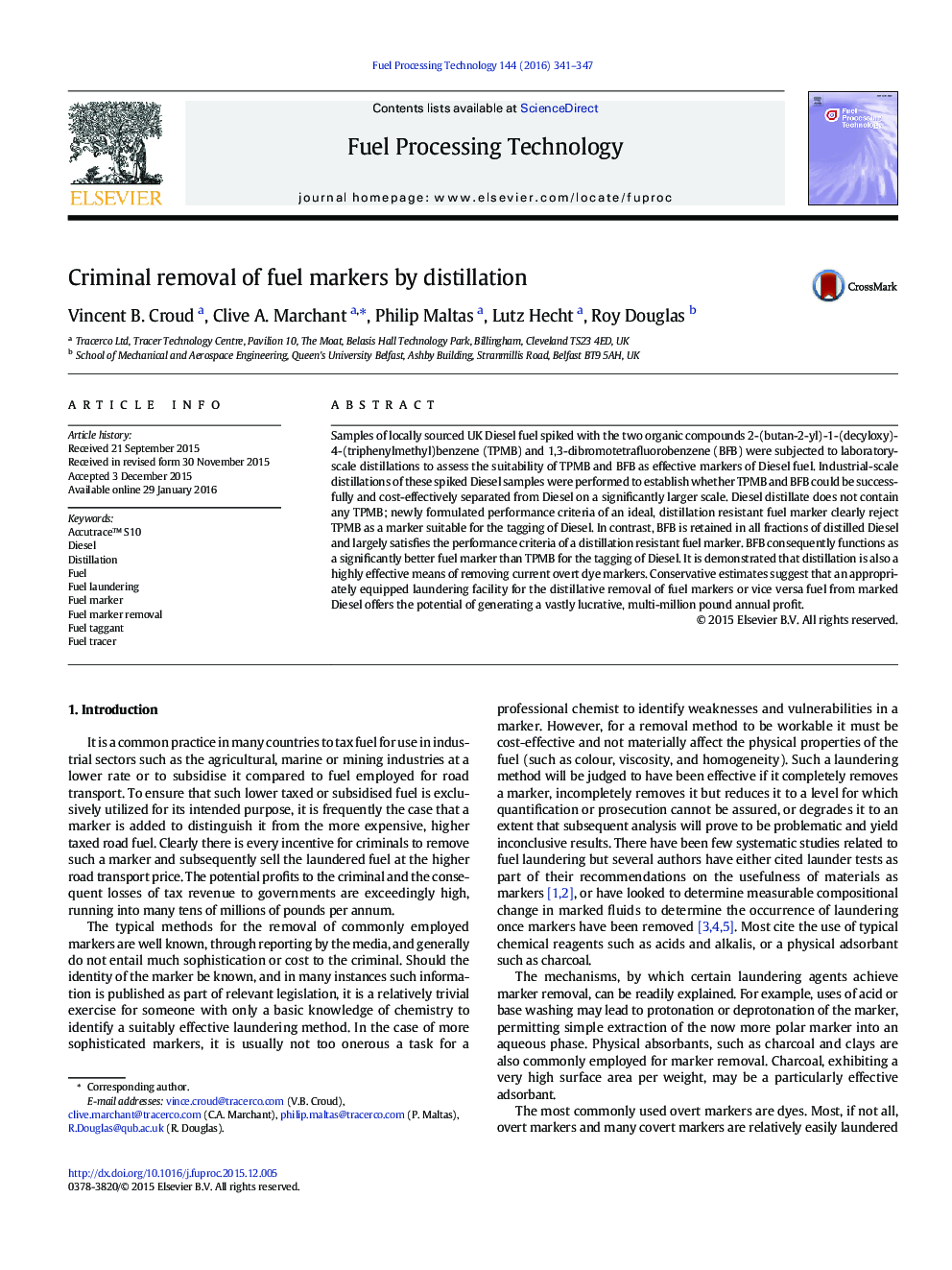| کد مقاله | کد نشریه | سال انتشار | مقاله انگلیسی | نسخه تمام متن |
|---|---|---|---|---|
| 209291 | 461664 | 2016 | 7 صفحه PDF | دانلود رایگان |
• Current fiscal fuel markers may be removed by distillation.
• Current fiscal fuel markers exhibit similar distillation characteristics.
• A large-scale distillation facility for marker removal is very simple to construct.
• Marker removal by distillation is easily achieved and extremely cost-effective.
• Measurement of a marker's distillation profile in fuel is essential.
Samples of locally sourced UK Diesel fuel spiked with the two organic compounds 2-(butan-2-yl)-1-(decyloxy)-4-(triphenylmethyl)benzene (TPMB) and 1,3-dibromotetrafluorobenzene (BFB) were subjected to laboratory-scale distillations to assess the suitability of TPMB and BFB as effective markers of Diesel fuel. Industrial-scale distillations of these spiked Diesel samples were performed to establish whether TPMB and BFB could be successfully and cost-effectively separated from Diesel on a significantly larger scale. Diesel distillate does not contain any TPMB; newly formulated performance criteria of an ideal, distillation resistant fuel marker clearly reject TPMB as a marker suitable for the tagging of Diesel. In contrast, BFB is retained in all fractions of distilled Diesel and largely satisfies the performance criteria of a distillation resistant fuel marker. BFB consequently functions as a significantly better fuel marker than TPMB for the tagging of Diesel. It is demonstrated that distillation is also a highly effective means of removing current overt dye markers. Conservative estimates suggest that an appropriately equipped laundering facility for the distillative removal of fuel markers or vice versa fuel from marked Diesel offers the potential of generating a vastly lucrative, multi-million pound annual profit.
Journal: Fuel Processing Technology - Volume 144, April 2016, Pages 341–347
